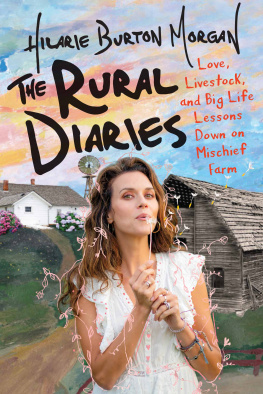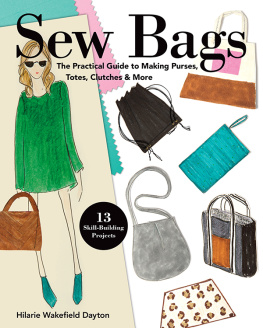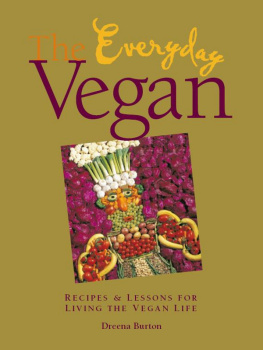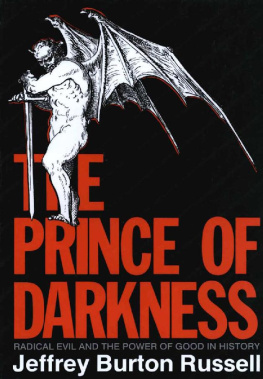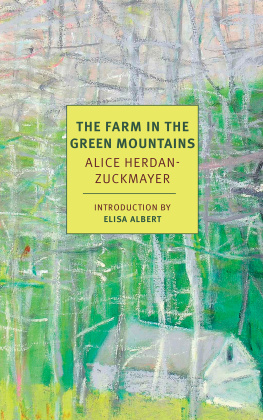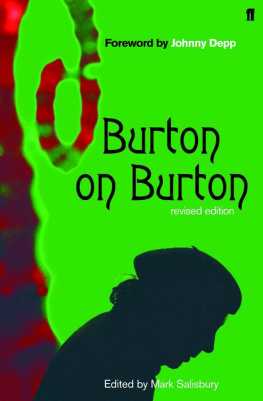Last weekend, Jeffrey and I got married. Really and truly married. It was the culmination of a decade of partnership, trial and error, and most importantly, effort. For years we had called each other husband and wife. We lived like we were married, raised our kids as a unit, built homes and a future together. But we knew that wed sidestepped that very real rite of passage.
It was fine. Livable. Happy. But our life at Mischief Farm demanded better of us. Wed found a sanctuary where authenticity mattered. The truths at the farm were concrete. The fields had to be mowed. The wood had to be chopped. The gardens had to be weeded. And the animals had to be fed. We wanted to be one of those truths.
So, on a bright, blue-skied October afternoonvery much like the day we first laid eyes on Mischief Farm, with the kaleidoscope of hues that autumn bringswe exchanged vows in front of a colorful collection of characters from our life. We chose the Bowery Hotel, a standard haunt of ours, as we were drawn to the history and mischief of the neighborhood. The Bowery is the oldest road in New York City, from the Dutch word bouwerij, meaning farm. All roads lead back to the farm.
I feel strong. When we made the choice to cast off the skin of our former lives, it was with tremendous uncertainty. We barely knew each other. But this place and this life were worth the risk. They were worth the hardships we faced. They were worth every effort. Our wedding wasnt the beginning of a life together. It was a celebration and a thank-you to the people and places that shaped our past ten years.
Love is like farm work. It requires consistency, and imagination. Your body will ache and you will be fatigued, but there is no greater reward than seeing the fruits of your labor.
In a parting gift to our guests, I included packets of Mischief Farm Marigolds, seeds Id sown from my own gardens. I hope they go out there in the world and grow and bloom and multiply with all the love from which they sprang.
What kind of farm did you grow up on? Folks always throw that question at me any time they find out about Mischief Farm. Oh you know, the lower-middle-class kind, which grows swing sets and grubby children and is surrounded by a chain-link fence. My childhood was fantastically suburban. Before Mischief Farm, the only farming I had done had been through literary adventuring. Green Gables. Little House on the Prairie. I longed for the landscape of Wuthering Heights. Hell, even Animal Farm held a certain appeal.
Both of my parents had agricultural experience, though. Their stories were fables in our family. My father didnt wax poetic about his childhood of manual labor. His tales were more cautionary. We never ate lamb, because his family had kept sheep for a while. It scarred him. Then there were the years they dealt in chickens. Equally scarring. Eggs must be scrambled to ultimate tightness, and any meat is to be cooked about four levels past well done. Hell or high water, we were gonna be spared from any barnyard diseases. It was clear that farming was not a pleasurable career path for my fathers family. Just a way to scrape by and keep seven hungry kids fed.
My mother, on the other hand, comes from real-deal farmers in Iowa. Multigenerational corn and soybean and pig farmers with huge tracts of land. The first time I visited my great aunts house on the farm in Iowa, I found it exotic. They had a hammock at the edge of a cornfield, and a dozen barn cats skittered around. My three brothers chased the cats against the backdrop of sunset, and I grabbed one of the kittens and settled into the hammock. Looking out on the cornfield, I marveled that this is what they woke up to every day. Even when I was a kid dreaming of being a showbiz dame like Doris Day or Debbie Reynolds or Katharine Hepburn, I held on to this vision of farm life.
I grew up in the little town of Sterling Park, Virginia, population nine thousand. I kept the pace of the Blue Ridge Mountains. I could hear cows lowing from my high school. It was a pastoral community. And then Amazon opened a huge headquarters in Northern Virginia, right in my little town, and suddenly an influx of two hundred thousand people completely erased the childhood that I had grown up with.
Jeffrey grew up in Kirkland, Washington. Once upon a time it was a tiny waterfront suburb of Seattle. He camped with the Boy Scouts, rode a mean old pony named Brownie at his grandmas pig farm, and played in the woods and water of the Pacific Northwest. Then, Boeing visited, saw lots of space and a good quality of life, moved in, and erased those things. So with both of our childhood communities swallowed up by big business, he and I never had the luxury of that fairy tale of raising kids in our hometowns.
Randomly, we found a new hometown: Rhinebeck, New York. A place that felt like wed known it all along. We marveled that a village like this still existed. So we were aware that when you find a community that nurtures you and your family, it isnt enough to just live in it; you must also nurture and protect that place and all the people who give you respite, solace, joy, and just enough hell to keep life interesting.
So, folks, this is a love letter. To a town. To a farm. To a man.
Dont judge each day by the harvest you reap but by the seeds that you plant.
Robert Louis Stevenson
T he first time we drove into Rhinebeck, I knew Id found a place I belonged. As we crossed the Kingston Bridge, the world cracked open before us, all sun and sky and river.
A large billboard for the Dutchess County Fair promised livestock and carnival rides and country music acts. A driftwood sculpture that loosely resembled a dinosaur peeped out from behind a few trees as we approached the town. I scratched the hair at the base of Jeffs skull and kept my hand on his neck. It felt bold. Together for fewer than two years, we hadnt exactly been in a honeymoon phase. Parenting was hard. Being apart for work was hard. Not having a real place to call home was hard. But riding along side by side, we felt light and hopeful and new. Our five-month-old son, Gus, babbled in his car seat. This felt like a place where things were made. A place that invited possibility.
We rolled through Rhinebeck Village, a tiny Dutch community that reminded me of Pella, Iowa, where my moms family was fromskinny buildings stacked up against each other that housed long-established mom-and-pop shops where you went just as much for the camaraderie as for any material goods.
Rhinebeck has only two commercial streets: Route 9, or Mill Street, which has a couple of churches, a post office, and a bank, and Market Street. On the corner stands a handsome brick building with a sign that reads Rhinebeck Department Store. At the crossroads is the Beekman Arms, a stately white inn with black trim and American flags snapping in the breeze. Its the oldest operating inn in the country. George Washington and other revolutionaries stayed there, and the Fourth Regiment of the Continental Army practiced drills on its lawn.
We parked and asked a couple of people where to get a cup of coffee, and they directed us to the candy store on Market Street. We passed one cute painted storefront after another, noticing how the sidewalk was hemmed in by a tidy line of trees whose trunks were surrounded by bursts of colorful flowers. Small crowds of smiling people moved along to a seemingly well-rehearsed choreography: nod, smile, wave at the baby, tip the hat, smile again. Like out of an old musical, the town had a rhythm that made it feel like someone might burst into song at any moment.

